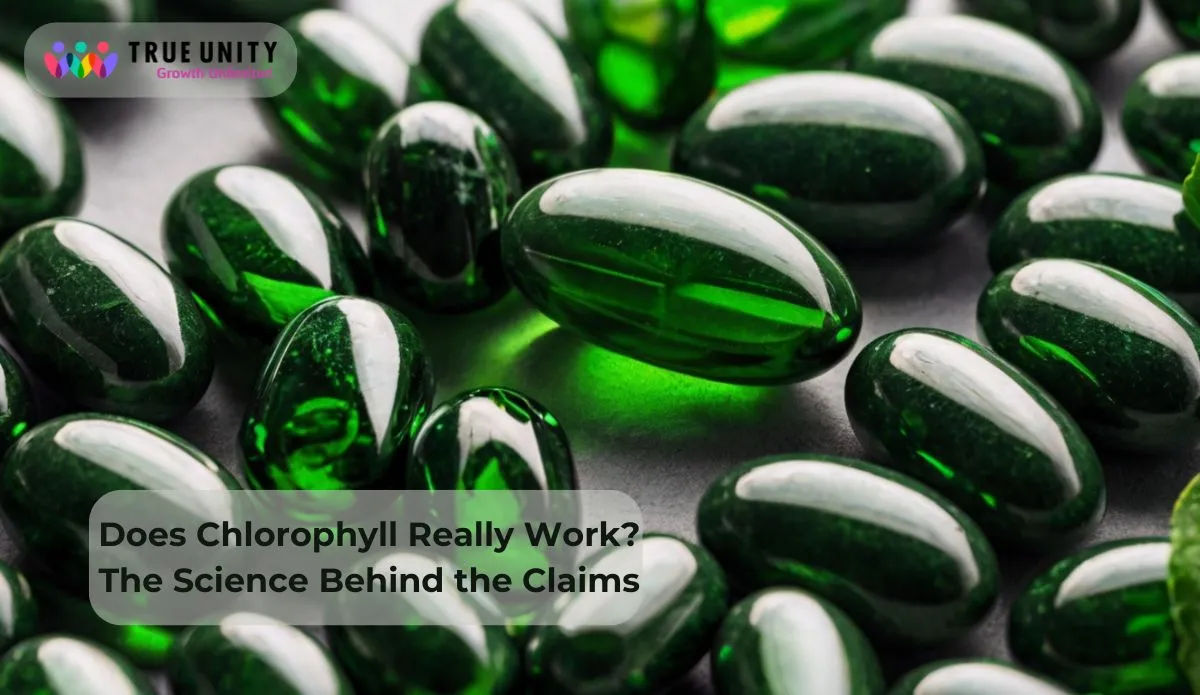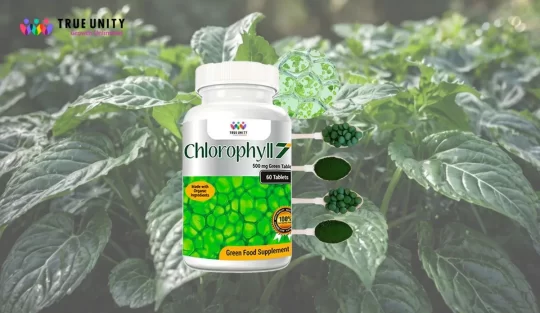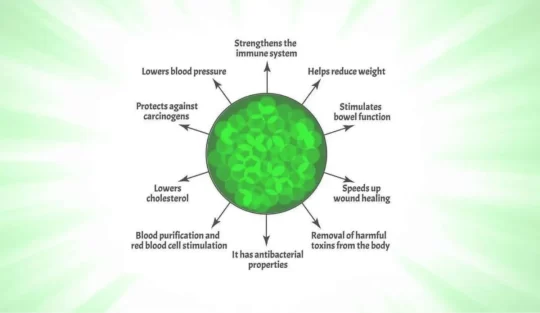
Thinking that does Chlorophyll really works, the vibrant green pigment responsible for the lushness of plants, has captured the attention of health enthusiasts worldwide. As research continues to unveil its potential benefits, chlorophyll is emerging as a natural powerhouse for supporting overall well-being.
Let’s explore the science, the benefits, and the exciting possibilities of this remarkable green elixir.
The Vital Role of Chlorophyll in Nature
Chlorophyll isn’t just a pretty color; it’s the lifeblood of plants. Through the amazing process of photosynthesis, chlorophyll harnesses sunlight and converts it into energy, fueling plant growth and sustaining life on Earth.
This essential molecule is found abundantly in leafy green vegetables, algae, and some types of bacteria, making it a fundamental component of our ecosystem and our diets.
From Plants to Supplements: The Many Forms of Chlorophyll
While chlorophyll is naturally present in the plant-based foods we eat, it’s also available in concentrated forms. Chlorophyll supplements are typically derived from alfalfa, algae, or silkworm droppings.
These supplements come in various forms, such as liquid drops, capsules, powders, and even topical ointments. Chlorophyllin, a semi-synthetic and water-soluble derivative of chlorophyll, is often used in these supplements due to its increased stability and bioavailability.
Advantages of Chlorophyll
Chlorophyll has been associated with a wide range of potential health benefits, sparking excitement among health-conscious individuals. Some of the most promising areas of research include:
- Supporting Detoxification: Chlorophyll’s ability to bind to certain compounds suggests it may enhance the body’s natural detoxification processes, promoting overall well-being.
- Nourishing Blood Health: Studies indicate that chlorophyllin may support healthy blood by increasing hemoglobin levels in individuals with specific blood disorders. Research is ongoing to determine its potential benefits for overall blood health.
- Nurturing Skin Health: Chlorophyllin ointments have shown promise in promoting skin healing and addressing various skin conditions, such as acne and minor wounds. Further research is underway to explore its full potential for skin health.
- Enhancing Vitality and Energy Levels: While direct links between chlorophyll and increased energy are still being studied, its association with nutrient-rich leafy greens suggests a potential contribution to overall vitality and energy levels.
- Promoting Healthy Weight Management: Emerging research indicates that chlorophyll may aid in weight management by potentially reducing appetite and promoting feelings of fullness. These exciting findings warrant further exploration into chlorophyll’s role in supporting healthy weight goals.
- Exploring Cancer Prevention: Early studies suggest that chlorophyll may play a role in protecting against certain types of cancer by potentially inhibiting the growth of cancer cells. Ongoing research is vital to unlock the full potential of chlorophyll in cancer prevention.
- Refreshing Breath and Body Odor: Chlorophyll’s natural deodorizing properties have shown promise in reducing body odor and bad breath. Further research is needed to confirm its efficacy in human subjects.
Harnessing the Power of Chlorophyll: Tips for Incorporating It into Your Life
The most enjoyable and effective way to benefit from chlorophyll is by embracing a diet rich in leafy green vegetables. Spinach, kale, collard greens, Swiss chard, and broccoli are all excellent sources of this green powerhouse. You can enjoy these vegetables in salads, smoothies, stir-fries, and a variety of other dishes.
If you’re considering chlorophyll supplements, it’s important to consult with your healthcare provider to determine the appropriate dosage and ensure it aligns with your individual health needs.
Frequently Asked Question
Are Chlorophyll Supplements Safe?
Chlorophyll supplements are generally considered safe when taken in recommended doses. However, high doses may cause mild digestive discomfort.
Can I get enough Chlorophyll from my diet alone?
Absolutely! A diet rich in leafy green vegetables can provide you with an ample amount of chlorophyll.
Does Chlorophyll interact with any medications?
Chlorophyll may interact with certain medications, such as blood thinners. Always consult with your doctor before taking chlorophyll supplements if you’re on any medications.



